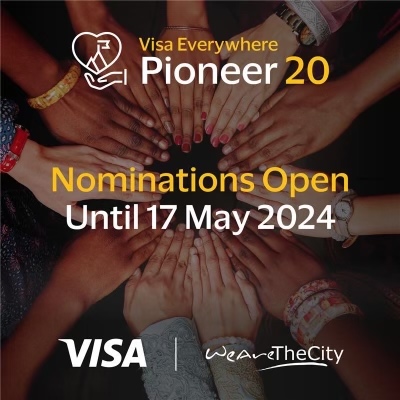Intelligent global change expert Mia Forbes Pirie is a quiet storm. 
As a mediator and coach whose clients have ranged from the US and Mongolian governments to the Church of England, the London born peace maker’s talent lies in helping people to have better conversations. Mia is Head of Alternative Dispute Resolution at a flexible, values-driven law firm (jurit.com). Her approach, whether working with individuals or countries, stems from a background steeped in the mindfulness and spiritual training she has honed over a period of twenty years prior and whilst working in conflict resolution. She is launching an online mindfulness course in January 2017.
At just forty years old, Mia’s body of professional work is remarkable. Work with the US Department of Energy saw Mia advise on facilitating negotiation to develop controversial legislation. Her role for the Church of England, was to chair shared conversations on human sexuality including LGBT issues and gay marriage. More recently Mia has immersed herself in the task of facilitating on high level conversations around the humanitarian dimension of the refugee crisis in Turkey, Greece and Italy. Whether assisting company CEOs in developing new strategy and changing their organisational culture, or creating a neutral platform for dialogue around some of today’s most testing global challenges, creating intelligent change which is sustainable, lies at the heart of all Mia’s work.
Did you ever sit down and plan your career?
Yes. But only after I’d worked out where my passion lies. For me, that’s the most important thing – even if it takes a while. Once you’ve taken the time to work out what you love, a plan gives you direction and focus. Seneca used the sailing analogy: there is no favorable wind for a person who does not know where they are headed.
Having a plan does not mean you must stick to it rigidly – I’m actually a strong believer that life happens in between the things you plan. It’s important to be flexible and open to opportunities as they arise. However, I’ve found that the busier I get, the more important it is to have clarity of purpose that tells me when to say ‘no’. Otherwise I find myself spread too thinly and it’s easy to get blown off course.
Have you faced any challenges along the way and if so, how did you deal with them?
I almost didn’t become a mediator after having been told early on that if I was going to make it I would need to be male and at least middle aged (preferably with grey hair!). The pull was too strong, though, and I knew I had to give it a shot. Working on highly controversial legislation in the US was very challenging. My work in the US took place in a highly politicised environment with powerful lobby groups, Freedom of Information Act requests and the occasional threat (thankfully, not physical). Challenging situations were often resolved more effectively if I took a step back rather than reacting straight away. Each challenge I faced made me stronger and better able to weather the storms ahead.
More recently, setting up in business on my own was a huge challenge. Not only do you have to be at the top of your game in what you do, you also have to learn the business of business! It took me a long while to realise it’s okay to ask for help. Now there’s nothing I love more than finding the right coach or friend to support me in the areas I find difficult. No one can do it alone. And every coach should have a coach!
It may sound trite, but the biggest obstacles we face are often in our own minds. Quieting my extremely vocal inner critic has had a positive effect on everything I do. Mindfulness is a significant part of my approach, helping me develop my intuition, trust myself and feel calm in difficult situations. Even when things around me feel up in the air, I can always use mindfulness to find my ground. I now use these techniques to help others overcome their own challenges, inner critics and limiting beliefs. I know from experience that once you have the right mind-set, everything else flows.
What advice would you give someone who wishes to move in to a leadership position for the first time?
If it’s something you want, go for it. Trust yourself and start before you’re ready (people rarely feel ready). People often think of leadership as a form of power, but I prefer to turn it on its head and think of it as service. Think about all you have to give and how you can best help the people you lead and the organisation you work for. “How can I best be of service?” is a great question to ask. Take that approach and you won’t go far wrong.
Know your own strengths and understand your limitations. You don’t need to know how to do everything yourself (although it does help to understand what’s involved); learn to delegate to the right people. Say “thank you” a lot. Remember to praise people for the good work they do for you – it will bring out the best in them.
Always be polite and always tell people what they have done well as well as what you would like them to do differently. Don’t let things slide, but be nice about it. Make sure you don’t do it for them – even if you think it will save you time this once, it won’t long term. Give people responsibility.
As a leader, you have to balance friendliness and openness with clarity around who is in charge: you. That also means setting the tone and leading by example. Be respectful to everyone, but don’t operate from a place of wanting to be everyone’s friend. If you’re liked, great – but that’s not your main aim. Be fair and be honest. Not only with that benefit your long term reputation, it will also mean you can look yourself in the mirror!
When faced with two equally-qualified candidates, how would you decide who should have the role?
Genuine confidence and humility as well as self-reflection are important, so I’d be looking for evidence of that capacity for development. I’d also be looking at personality, resourcefulness and how they complement the team.
Diversity is incredibly important for the team and the organisation. We all have unconscious biases in favour of people who are like us, so I’d do my best to notice if I’m drawn to someone more because they are like me. Do I need another “me” in the team or would the team benefit from someone different, who thinks differently and has different life experience? It’s important for a team to work well together but we also need people who challenge the status quo, who make us think differently and question the things we’ve come to take for granted.
How do you manage your own boss?
When looking for a job, I generally advise people to choose their boss, over choosing their job. If you’re working for someone inspiring whom you can learn from, there’s less need to ‘manage your boss’! You are on the same team, learning and growing together, mutually supporting each other.
Be true to yourself and appropriately honest. Know your value and be willing to walk away. Develop appropriate friendliness, but have good boundaries. Don’t over-promise. Over-deliver instead. Ask for help when you need it (within reason).
Now, most of the time I am my own boss. Managing myself means getting to know myself really well; learning how and when I work best, and developing my own rhythms. It’s important that I take time to evaluate my strengths and weaknesses so I can make best use of my strengths whilst seeking support in my weaker areas.
On a typical workday, how do you start your day and how does it end?
I start my day with mindfulness meditation which helps me be more centred and focused throughout the day. If I’m behind, though, I’ll dive straight into my work and, when I start to feel scattered and unproductive, that’s my cue to meditate.
I also start with a big glass of water or cup of herbal tea and make sure I have a healthy, nutritious breakfast. Before I eat, I say three things that I am grateful for. I do this before every meal, not just at breakfast. We humans have an internal bias that points us towards seeing danger and finding fault in things, so it’s important to redress that with some unadulterated positivity!
My days are quite varied, so don’t tend to have a typical end. Sometimes I will be out at an event, and some evenings I work with coaching clients. Whatever I’m doing, as the evening draws to a close, it’s nice to look back with gratitude at the good things that have happened that day.
What advice can you give to our members about raising their profiles within their own organisations?
It goes without saying (but I’m saying it just in case!) that you should focus on doing great work! Take full responsibility for the work you are given, so that people know you are a ‘safe pair of hands’. Take credit for your work, but be sure to also give credit to those who have helped you and are deserving of it. Let people know what you are interested in and get involved outside your direct area. Get known as an expert in your field in your own right, inside and outside of your organisation.
Be yourself (always appropriately). Be interested in other people. Get to know them. Be enthusiastic and follow through. Build a reputation as someone who is fair and honest, works well with others and gets things done. Be generous whilst knowing your worth.
How have you benefited from coaching or mentoring?
Coaching and mentoring have been invaluable to me. Early on in my career I made the mistake of thinking that asking for support was a weakness. Now I understand that it’s the real strength that can make the difference between plodding and flying. I work with coaches who help me develop my business efficiently and effectively, alongside those who help me stay authentic, fair, and true to myself. I look for support from people whose authenticity I trust deeply – I’ve developed great intuition about this over the years. I tend to be wary of anyone who proclaims to have THE one size fits all answer, whilst giving the impression that everything in their lives is perfect. I am a realist and I look for that in the people who guide me.
It’s very important to me to always keep learning and to stay humble. The balance of humility and self-belief is what creates a powerful, trustworthy, ever-growing you. The you that shines outwardly but also feels at peace with quiet confidence inwardly.
Whilst I’ve grown immeasurably through coaching and mentoring, mindfulness has been an equal catalyst in my development, helping me to foster a deep inner strength and confidence. That’s why I’m bringing out an online mindfulness course – so I can share that resource with others and help them find a deeper resilience.
Do you think networking is important and if so, what 3 tips would you give to a newbie networker?
Getting to know and understand the people who drive business and make decisions that affect your industry is incredibly important. People sometimes feel awkward about networking. I think that’s because they feel it’s just about trying to get something from people. I don’t see it like that at all. Networking is about building trust and relationships with your colleagues as well as new people. Building these relationships will help you work better together, keep you in touch with what’s happening in your industry and may even inspire you!
Those who find networking difficult might benefit from these tips:
- Be genuinely interested in the people you meet. People are fascinating, their stories and lives so interesting. Enjoy getting to know them, what they do and what makes them tick.
- Don’t be over-keen to ‘sell yourself’. Be a good listener first. But remember that people will be genuinely interested in you and what you do. So be willing to share. Opening up (appropriately) is an act of generosity.
- Aim to leave every interaction by giving the person something positive, even if it’s just a warm smile. Be generous.
What does the future hold for you?
At a New Year’s Eve dinner a couple of years ago, we were asked to say what we would do if we inherited millions tomorrow. I felt fortunate to be able to answer ‘exactly what I’m doing now’. I love what I do. Mediating, coaching and speaking get me up in the mornings with a spring in my step! I’m excited about the launch of my online mindfulness course. The online approach is new to me. It will enable me to help more people feel empowered and develop long-term resilience that will serve them in every aspect of their lives.
I’m sure there will be more public speaking in my future, and I’m looking forward to working with new coaching clients. I love helping people to find a way through the difficult times in their lives and to find peace through dialogue.
On a bigger political level, I am looking forward to continuing the work I’ve been doing helping MPs, NGOs and think-tanks have better discussions about the current refugee crisis. I’m also interested in seeing what can be done to facilitate better conversations over Brexit. Longer term, who knows? I’d love to be involved in peace in the Middle East.








